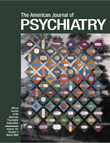Skin Game,
I needed to kill something in me, this awful feeling like worms tunneling along my nerves. So when I discovered the razor blade, cutting, if you’ll believe me, was my gesture of hope. That first time, when I was twelve, was like some kind of miracle, a revelation. The blade slipped easily, painlessly through my skin. As swift and pure as a stroke of lightening, it wrought an absolute and pristine division between before and after. All the chaos, the sound and fury, the uncertainly and confusion and despair—all of it evaporated in an instant, and I was for the moment grounded, coherent, whole. Here is the irreducible self. I drew the line in the sand, marked my body as mine, its flesh and its blood under my command. (p. 57)
tried one night to cut deeper, torn between the anticipated thrill of a deep slash and the body’s organic mindless resistance to such assault.…To cut with conviction. To wound for the feverish beauty of the wound itself. I wanted blood—not the refined bubble of sundered capillaries, but a frantic spill, something beyond caution, beyond control. (p. 100)
I went through my entire pregnancy feeling I was trying to pull off a sham, pretending to the part of the ethereal Madonna when I was wholly unqualified for the part. And yet, when my son was born into the waiting shelter of my arms it was as though the shape and structure of me had been made precisely to the purpose of fitting him. I was shocked by the fierce and immediate entanglement of this bond, that my son should become to me like a chamber of my heart. (p. 174)
Information & Authors
Information
Published In
History
Authors
Metrics & Citations
Metrics
Citations
Export Citations
If you have the appropriate software installed, you can download article citation data to the citation manager of your choice. Simply select your manager software from the list below and click Download.
For more information or tips please see 'Downloading to a citation manager' in the Help menu.
There are no citations for this item
View Options
View options
PDF/ePub
View PDF/ePubGet Access
Login options
Already a subscriber? Access your subscription through your login credentials or your institution for full access to this article.
Personal login Institutional Login Open Athens loginNot a subscriber?
PsychiatryOnline subscription options offer access to the DSM-5-TR® library, books, journals, CME, and patient resources. This all-in-one virtual library provides psychiatrists and mental health professionals with key resources for diagnosis, treatment, research, and professional development.
Need more help? PsychiatryOnline Customer Service may be reached by emailing [email protected] or by calling 800-368-5777 (in the U.S.) or 703-907-7322 (outside the U.S.).

